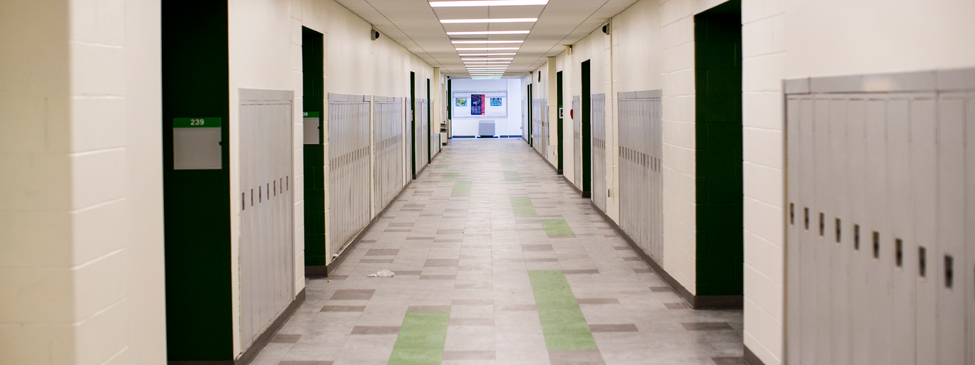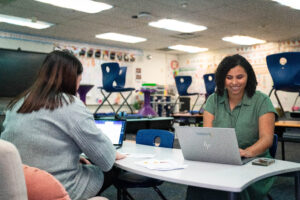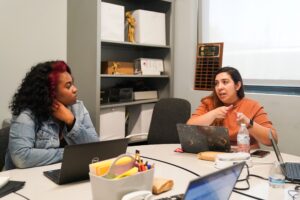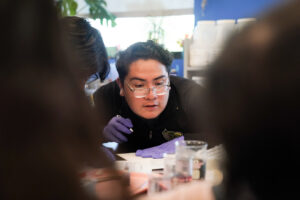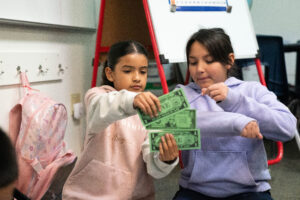Campbell Park Elementary School is a priority school in Pinellas County, Florida. This year, we set out to help them with strategies to improve their school discipline efforts. Here, we sit down with Rob Ovalle, Principal at Campbell Park, to discuss the results of our partnership and the outlook on his school’s future.
Tell me a little about Campbell Park Elementary School and some of the behavior issues the school has struggled with in the past.
We serve about 600 pre-k through grade five students, 94 percent of whom receive free and reduced lunch. About 20 percent of our students are students with disabilities, which is one of the highest percentages in our district. I have been principal here for two years now.
When I took over last year, we were coming off a school year in which there were over 1,400 recorded behavioral infractions. Maintaining classroom order was challenging for our staff and many of the infractions were for leaving supervised areas and for physical aggression. I thought the first change we would need to make was to take a hard look at the instruction our teachers were delivering and increase the number of instructors in our school. I hired 29 first-year teachers to help. Our line of thinking was, “If we can just do a better job of teaching, our students will make gains.”
But as the school year progressed, we realized the solution wasn’t that simple. Our teachers poured their hearts into their instruction, but on the discipline front, we weren’t making the impact we were looking for. At the end of the year, we reached out to the Department of Exceptional Student Education in our district to get resources and training on the causes of misbehavior and theories on how to change it, but that also didn’t translate into the quick changes we needed.
How did the partnership with TNTP differ from your past attempts at improving student behavior?
TNTP helped us focus on addressing the student behavior issues we were struggling with by helping our teachers provide more engaging and challenging instruction. My thinking was challenged to better our staff and provide differentiated support that helped us grow as a school at all levels. My staff and I were given strategies and techniques from resources such as Teach Like a Champion that we could use in the classroom. Our teachers were given an opportunity to practice these new skills, and with feedback guiding them in the right direction, implemented them with success.
Our work with TNTP’s coaches, who provided side by side in-class coaching—with in-the-moment modeling sprinkled in—helped our teachers develop rapidly. During planning sessions with teachers, coaches pushed them to rehearse their lessons before they were in front of students. This allowed teachers to troubleshoot any misunderstandings or tricky spots and allowed coaches to provide support before they got in front of students.
Finally, the changes we made to our leadership strategy were crucial. By setting a clear purpose for what we tackled each day, we were able to shift our work away from focusing on the “fire” of the moment and align it with our priorities.
How has all of this affected student behavior at Campbell Park?
This year we’ve seen a 52 percent reduction in our behavior infractions: from 952 to under 450. I think this dramatic reduction is due to the concrete strategies our teachers, coaches and leadership were prepared with.
What is the biggest challenge you worked to overcome?
Our own mindsets. Our work this past year has really challenged us to think about the day to day differently. We are thinking more critically about each action we take. We often ask ourselves, “Will this action result in teacher or student growth?” Because no one walked in and said, “Here’s the roadmap,” we had to do a lot of our own thinking about how to solve some of our problems.
What are some of the tough decisions you’ve had to make as a principal in embracing this new approach?
There are so many tough decisions. Many of them are centered on how I spend my time each day. I found I tended to get sidetracked from the two to three priorities I had set for the day by “fires” that needed to be put out. So I had to change the way I work and remind myself when things come up, unless it’s a true emergency, it can wait. My priority right now is observing this teacher and providing her meaningful feedback—or whatever I’m prioritizing at that moment. I realized I was getting pulled in to deal with technical issues others could have tackled without me.
Something else I decided to take on was direct conversations with teachers about their performance. All of my teachers work so hard. But hard work doesn’t always get the results that are needed in this setting. A teacher might be a good instructor, but sometimes this school isn’t the best fit for them.
Those are difficult conversations to have with teachers, and I had to push myself to have them this year. But doing so made me realize I hadn’t been direct enough with my most effective teachers, either. I realized I could do more to go out of my way and let great teachers know that they are irreplaceable and that we need them here at Campbell Park. When I began to do that, the reactions were very positive.
How have you changed your approach to planning for the upcoming school year?
We really took a look at what worked this year and what we want to change. We developed a vision of what teacher development should look like at our school, then we planned all of our meetings, professional development sessions and professional learning community meetings around it. We have one clear purpose: increase student achievement by developing our teachers. We’re thrilled that this plan is in place for the upcoming school year now.
As a sports fan, I’m fond of the old adage, “Championships are won in the off season.” For us, it hits home. We are ready for the upcoming school year because we did the hard work to prepare during the off-season before the school year even started.
What goals do you have for Campbell Park this upcoming school year?
I want what most principals want, for our achievement scores to show the results of our hard work. I want to hear my teachers say they have grown during the school year as a result of our development. I want to see engaged classrooms where learning seems contagious; classrooms where students are excited. I want to see teachers take ownership over their growth. I also want to see them continue to give everything they can, simply because it’s the right thing for our students.
